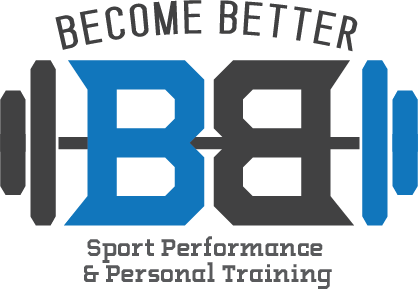Pre-Workout Nutrition
What you eat and how much you eat can have a large impact on the quality and productivity of your workout. If you’re not fueling your body properly before you get to the gym or if you’re stuffing yourself so full that you’re feeling slow and lethargic, you are likely decreasing the overall quality of your workout. This article will discuss how and why you should eat prior to your workout, and also offer some special considerations for morning and afternoon workouts.
Why should you eat before you work out?
Working out on an empty stomach is like driving a car on E. You’ll be fine for a few miles, but you won’t be able to go much further. It’s important that you provide your body with some fuel before you work out so that you’re able to give 100% effort for the entire session and reap all the benefits of a tough workout. Showing up to the gym on an empty stomach will likely lead to a suboptimal workout due to low energy availability. It is also pretty common for people to feel light headed or nauseous when they’re working out hard on an empty stomach. Eating something small before your workout will fix this problem.
What should you eat before you work out?
Your pre-workout meal should be high in carbohydrates, a moderate amount of protein, and a low amount of fat. Carbs are important for providing quick, easily useable energy during your workout. Depending on your preferences and the time of day, you’ve got plenty of options for quick carbs. Cereal, oats, toast, fruit, rice, quinoa, potatoes, crackers, and gatorade (or similar) are all great options.
The protein is important for stimulating your body’s protein synthesis (muscle building) pathways which will be beneficial during your workout. Some great protein options include egg whites, low-fat milk, non-fat greek yogurt, lean meats, whey, or your favorite vegetarian or vegan protein source. Certain protein bars are also great choices for both pre-workout carbohydrates and protein. Stay tuned for a more in depth discussion on protein bars next week!
It’s important for your pre-workout meal to be low in fat because fat will slow down digestion, which will negate the effect of the carbs. Try to avoid things like nuts, nut butters, oils, butter, and fatty meats such as bacon or ribeye in your pre-workout meal.
How much should you eat before you work out?
This will be more individual preference, but in general you shouldn’t eat a huge meal immediately prior to a workout. Eat enough to satisfy your hunger, but not so much that you’re going to feel uncomfortably full during your workout. Save a bigger meal for after your workout. High bulk, fiber dense foods such as beans and broccoli should probably be avoided immediately pre-workout as well since these foods have a tendency to make you feel very full.
How do the recommendations change between morning and afternoon workouts?
If you work out first thing in the morning, you’ll probably want to eat a little bit more protein prior to your workout since your body has been without it all night. Have a scoop of whey protein along with breakfast. You can probably get away with eating a slightly bigger meal prior to your morning workout as well since you won’t have much food sitting in your stomach.
If you work out in the afternoon or evening, make sure you’ve fueled yourself properly throughout the day with evenly spaced meals. Plan to eat your pre-workout meal about an hour to an hour and a half prior to your workout. If you eat lunch around noon and you work out after work around 5 or 6 and you won’t be eating dinner until after your workout, it would probably be a good idea to have a high carb, moderate protein, low fat snack about an hour before your workout. A protein shake or protein bar with gatorade or fruit would be a great pre-workout snack.
Conclusion
Eating before a workout is more important than you might think. Come to the gym properly fueled and ready to work hard. You’ll be able to put more effort into your workouts and see better results. You’ll be happy you did!

